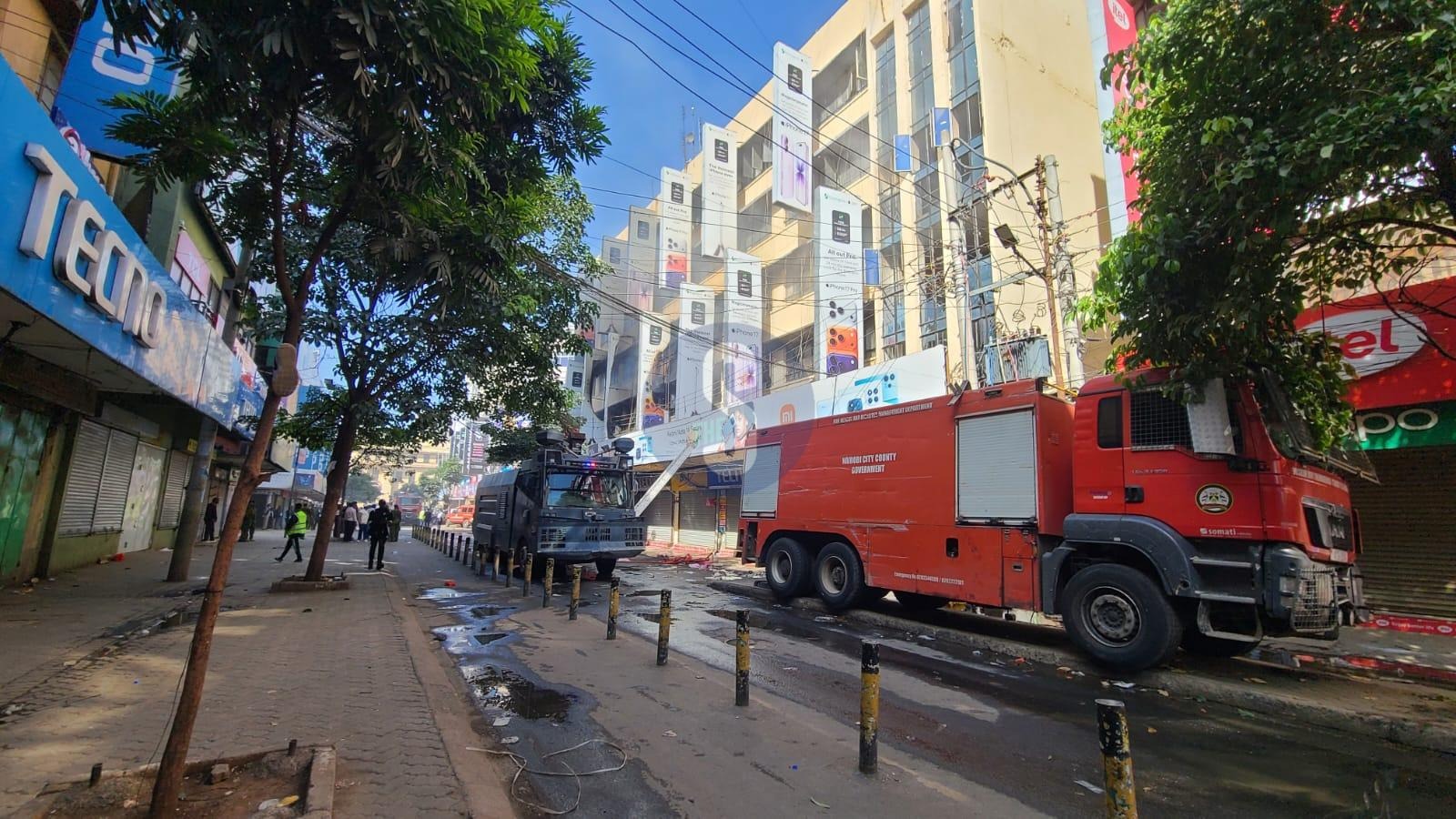A fire has broken out at a commercial building along Luthuli Avenue in Nairobi’s Central Business District, near the Munyu Road junction.
The Kenya Red Cross has confirmed the incident. According to the Kenya Red Cross, emergency teams have already been dispatched to the scene as containment efforts continue.
The incident, reported late Saturday evening, sent plumes of smoke into the CBD as traders and pedestrians scrambled to safety.
The cause of the fire and extent of damage are yet to be established, and there were no immediate reports of injuries.
Authorities have urged motorists to avoid the area as rescue operations continue.
This is a second fire outbreak on the busy street in under a week.
Businesses along Luthuli Avenue remained closed on Wednesday morning as police maintained a presence to prevent looting following a fire that broke out at one of the buildings on Tuesday.
The blaze, which engulfed a building housing several electronics shops, brought normal operations along the busy Nairobi CBD street to a standstill.

On Wednesday, firefighters managed to rescue some of the property.
A huge crowd gathered at the scene where the fire had already destroyed a considerable part of the building.
The cause of the fire has not yet been established.


















